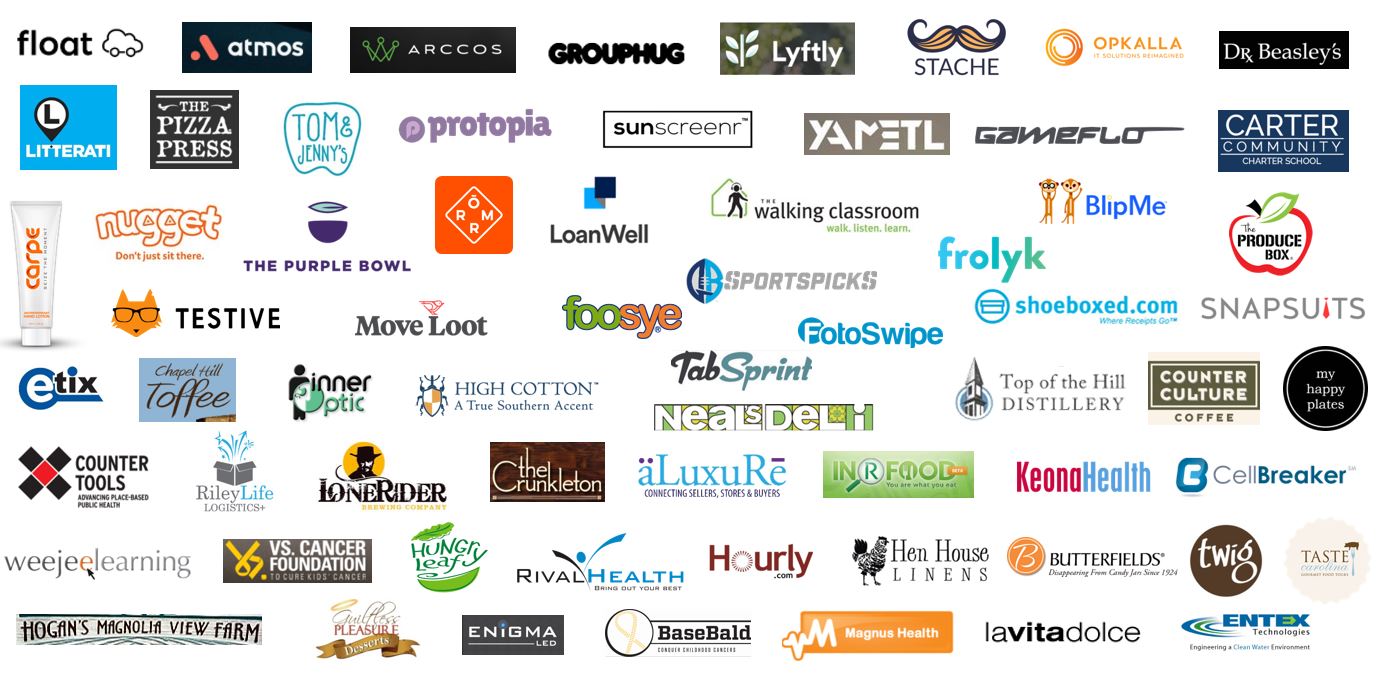Info for Startups
UNC’s BUSI 505 is an undergraduate course in which teams of undergraduate business school students embark on an independent research project to identify a growth strategy for a startup.
Former Clients of BUSI 505 Entrepreneurial Consulting:
Classes Run
- August 20 – December 5
- January 12 – April 30
Startup/Student Meetings
- 3rd week: Kick-off Meeting
- 12th week: Final Presentation
… The class is an opportunity for free market research for startups, with the caveat that you will not have any control over the students’ activities. It will be entirely their independent project under faculty supervision. The students must identify and research their own growth strategy. Businesses will receive all research materials and findings at the end of the semester.
FAQ for Startups
What can you expect?
Clients can expect an enthusiastic team of undergraduate students working on a semester-long strategic growth project. Students’ will engage in many research activities, both primary and secondary,* but the focus is on getting out of the building and talking to people, both customers and experts. You can expect to receive interesting data that you otherwise would not have the time to collect.
*What are primary and secondary research? Primary: data the team creates through interviews, surveys and observations. Secondary: data the team finds, usually online.
What not to expect…
Speed. It’s a semester long project. I know, an eternity for startups! Also, don’t expect deep industry knowledge. Students will spend much of the semester simply trying to learn as much as they can about your industry, your market and your business.
How often should you plan to be in contact with your team?
Twice. Seriously. Student teams will be supervised by faculty, and we limit their exposure to you because we’ve learned that you are a distraction. A simple email from you, for example, can throw off their project for a week or more. They may, for example, have to meet as a team to discuss how to respond. They could also become discouraged by some activity you are engaged in that could affect their project. We want them to focus on their strategic project, gathering information that will be useful to you through their research. Any time spent “managing the client” is time not spent talking to customers and experts.
For those reasons, we limit your interactions to TWO in-person (or virtual) meetings over the semester:
- A 75-minute kick-off meeting with your team, about three weeks later.
- The final presentation at the end of the semester, about 30 minutes.
You might meet one or two more times with your team, and we hope you will be responsive to emails for information, but we discourage any other contact as it tends to distract from the project at hand.
Really, just twice?
It is not intuitive, but in our experience, meeting with you is very distracting for the team (as well as a burden for you). They’ve all had bosses. This class is not about following the boss’ instructions. It’s about figuring it out themselves, as founders must do, which necessarily means they will be much less efficient than if they worked directly with you. But please believe me that they will have a profound learning experience about what it is like to be submerged (albeit partially) in the craziness and excitement of a startup. And, with any luck, they may uncover a couple of interesting tidbits for you.

